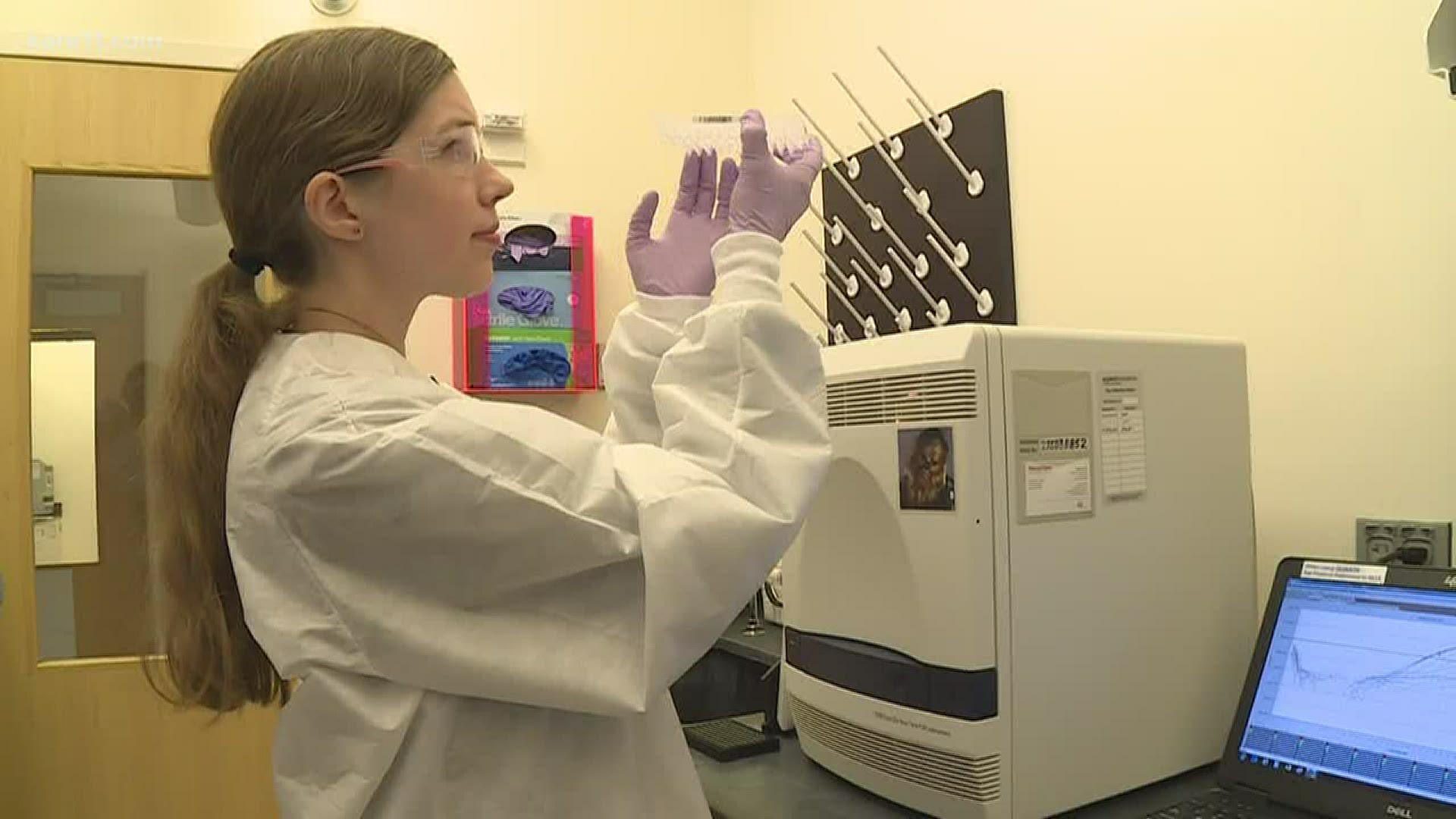MINNEAPOLIS — Governor Tim Walz has announced a partnership with the Mayo Clinic and University of Minnesota that will soon expand testing capacity to 20,000 molecular and 15,000 serology tests per day.
Walz said the plan being put in place will allow for more testing than any other state in the country, and potentially any country in the world. While molecular tests are used to diagnose whether a person has COVID-19 currently, serology tests determine whether a person has had the virus in the past and has built up antibodies.
The number of tests available should soon allow the state to test all people in the state who are showing symptoms, Walz said.
Minnesota Department of Health Commissioner Jan Malcolm said priority for molecular testing will go to all symptomatic patients.
Malcolm said the testing methods will be strategic and include intensive testing of vulnerable populations, including Minnesotans living in congregate settings and those experiencing homelessness, staff that serve vulnerable populations and health care workers, communities of color and American Indian populations, and workforce for critical infrastructure.
Malcolm said a health alert message was sent out statewide Wednesday to test every symptomatic Minnesotan as soon as possible.
“We are committed to our vital public health obligation of aggressively expanding access to COVID-19 testing throughout the state. It will be core to any effort to safely reopen our state” said Jakub Tolar, MD, PhD, Dean of the University of Minnesota Medical School. “This is a complex health challenge. It is only fitting that two of Minnesota’s pre-eminent research institutions answer the call together in our commitment to tackling this pandemic. We are deeply grateful to Governor Walz and Minnesota leaders for supporting this testing strategy."
Malcolm said it will take a few weeks to build up the system toward the capacity of 20,000 tests per day, but it is "fast moving." They are withdrawing $36 million from the COVID-19 fund the Minnesota Legislature set aside for virus response, in order to fund this first phase.
As far as every symptomatic person getting a test, Malcolm said "that's not going to be tomorrow." But she said they are sending out a message to the statewide health care system to make it clear that they can begin testing every symptomatic person immediately, and that the state will stand behind them to ensure every sample they take gets processed.
MDH, the Mayo Clinic and the University of Minnesota will create a central lab to facilitate expanded testing and a virtual command center in coordination with the health systems to monitor daily testing and manage rapid responses to outbreaks.
Dr. Michael Osterholm, the infectious disease director at the University of Minnesota, cautioned that although this is a breakthrough, the state is not out of the woods.
“This is not going to get over any time soon,” he said, adding that less than 5% of Minnesota’s population has been infected with the virus so far, well short of the 60 to 70% that eventually may wind up with COVID-19.
RELATED: Live updates: Gov. Walz announces 20,000 COVID-19 tests per day will be available to Minnesotans
KARE 11’s coverage of the coronavirus is rooted in Facts, not Fear. Visit kare11.com/coronavirus for comprehensive coverage, find out what you need to know about the Midwest specifically, learn more about the symptoms, and see what companies in Minnesota are hiring. Have a question? Text it to us at 763-797-7215. And get the latest coronavirus updates sent right to your inbox every morning. Subscribe to the KARE 11 Sunrise newsletter here. Help local families in need: www.kare11.com/give11.
The state of Minnesota has set up a hotline for general questions about coronavirus at 651-201-3920 or 1-800-657-3903, available 7 a.m. to 7 p.m. There is also a data portal online at mn.gov/covid19.

